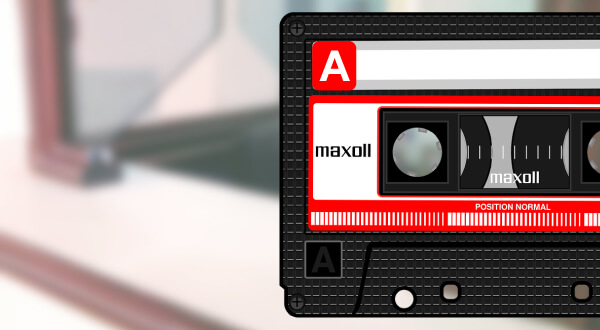Myths, legends, traditions and similar things (xi-side A)

I decided to write this post a Friday night, after a long day, lining up to check in at a hotel. It was one of those Jerry Maguire moments. Of course, it was not the middle of the night, and the digression could not be attributed to a poorly digested piece of pizza. The reason was that a queue of only three people took more time than one of thirty. So now I am asking you to be patient with me while reading this and believe me that ultimately this will come one way or another to the tax administration.
 The time it took for the person who was at the counter to complete the process was so long that I imagined it was someone closing his account and discussing what was paid or not, what was consumed or not, what would be paid by the company account and what not. Perhaps that is the reason why, or because I had nothing else to do, I began to observe the complete procedure of the following person.
The time it took for the person who was at the counter to complete the process was so long that I imagined it was someone closing his account and discussing what was paid or not, what was consumed or not, what would be paid by the company account and what not. Perhaps that is the reason why, or because I had nothing else to do, I began to observe the complete procedure of the following person.
I already knew that, in this country, as elsewhere in our Latin America, they were going to make a photocopy of the passport, to fill out a form with information such as the name, nationality, and place of provenance and destination, profession, email, phone and color of eyes. Next, of course, I was more surprised when I saw that the only employee doing the registry receives the form, and starts entering in the computer one by one the fields on the form. After that, I assume, once completed the transcription of the identity data document and form, the man behind the counter remained staring at the screen, studying the display at least half a minute, to next ask the future guest if he preferred a high floor or low one, then return to the deep analysis of the monitor to assign a room. With a despairing slowness, he finally turned to the multipurpose printer, where he took the copy and picked up the impression of the completed form, requested the signing of the guest, requested a credit card for the booking, asked if was credit or debit, informed the host that he was charging the full hosting, to finally, after pressing an unimaginable number of keys, he programmed the card that serves as a room key, to ceremonially insert it in an envelope and start to recite, with the same routine tone that we hear in a police movie for the reading of the Miranda rights to a detainee, the list of things that the host should know: this is your room, your username for the Wi-Fi, this is the room number and the password is your last name, the breakfast is on this floor and during such hours, gym is here, lifts are there, with the key you can also access the Business Center, and for any request you can dial “0”.
With the second person, the procedure was perfectly repeated. When the one who preceded me in the queue approached the counter, I was already feeling pity for him… and for me. While the third lived his seven minutes of registration before going to sleep, I wondered who designed this procedure this way, and why. Why on earth, with one single person attending, do they have to transcribe the data now, and moreover, why do they capture them. I assumed that the phone could be used to communicate with someone in an emergency in case the guest had a heart attack at midnight, and the email address would be used to send the advertising offers of the hotel or chain, the date of birth to prevent the entry of non-accompanied minors. But why did the hotel want to know if I was coming from city A or going to country B, if I lived in a street or an avenue, which was my profession or my marital status. Surely the copy of the document, and some of the information requested, responds to some compelling regulation. But my questions continued: will be that the hotel employee is trained to verify if the signature on the form is the same as on the document? No, he did not even verify it. Is it that the hotel system has a list with the names of all the cities and villages in all the countries of the world, probably not, and if not, will they be able to transcribe correctly Gualeguaychú? And, most of all, is the employee trained, as a poker player, to know if these information from the guest are true, or the result of the creativity of someone who wouldn’t like to be found, or the product of the imagination of someone who would want to alter all the data, as a small revenge for this inexcusable waiting time after a 7-hours flight? Will someone check those copies? And if they use that data in some agency for a statistical purpose, in that agency will they be aware of the fragility of the process in terms of the quality of information? Immediately I couldn’t help thinking of the diametrically opposed experiences, check-in in hotels where it took only 30 seconds: good evening, reserve name, I need a document to verify the name. Data were not captured, there were no copies. It was not necessary to have a card, they already had it in file, but I guess that this last point will not always apply, the card will be required for a new or not frequent customer and they will ensure an amount to close the account in the checkout. They gave me two keys, although I was alone. And they wished me good night. I guess that the one who designed this process supposed that I would be able to find the elevator, room and breakfast place. That experience, whose perception improved substantially, is most probably the result of a studied process, better systems, and more appropriate regulations. A policy, so to say, client-centered, tourist-centric.
Unlike what happened with Renée Zellweger in Jerry Maguire, when I received the greeting, they had already lost me as a customer and I had decided to write this post to ask myself and ask my readers if still we do things like that to the taxpayers. In front of the counter, while I lived my seven-minute check-in time, I remembered the places where we do exactly this. Continue reading…
1,385 total views, 2 views today
